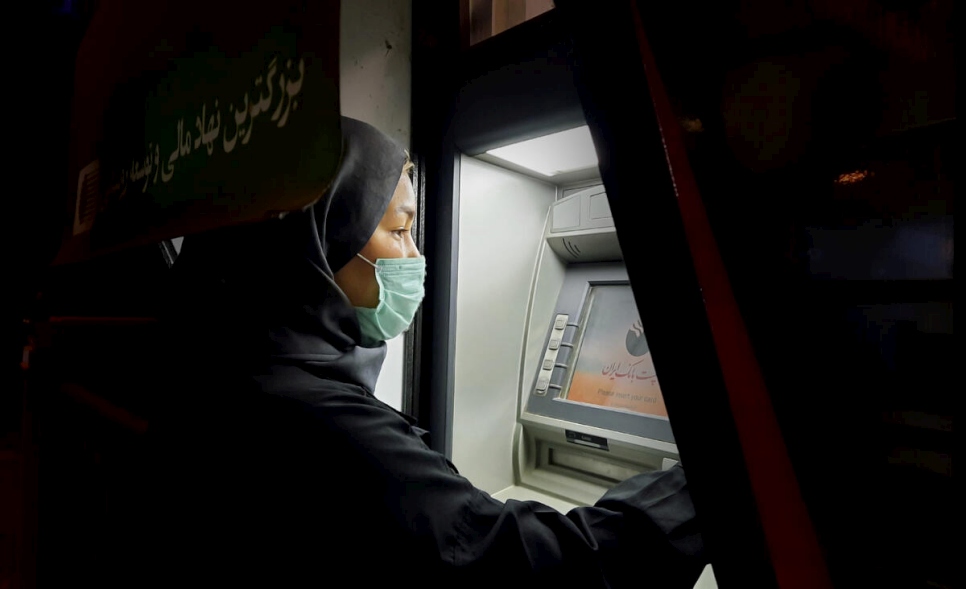Iran policy change gives refugees access to banking services
This is a summary of what was said by UNHCR spokesperson Babar Baloch – to whom quoted text may be attributed – at today's press briefing at the Palais des Nations in Geneva.

Prior to the new policy, most Afghan refugees in Iran could not draw cash from ATMs or make digital payments. © UNHCR/Zahra Nazari
UNHCR, the UN Refugee Agency, welcomes the Government of the Islamic Republic of Iran’s recent move to formalize access to banking services – including debit cards, for Afghan refugees in the country.
Before the new policy was announced, banks around the country followed different practices, which meant that some refugees could access banking services but most could not. Now, all refugees will have a more secure means of managing their finances.
Without a bank account, refugees are compelled to keep large sums of money at home and travel with cash when making or receiving payments – increasing their risk of losing savings due to security incidents like fire or theft.
In Iran, as elsewhere, there has also been a growing preference for digital payments instead of cash to avoid unnecessary physical transactions during the COVID-19 pandemic. Salary payments, online purchases, university registrations, and reimbursements of healthcare fees are now also mostly made via online bank transfers. This makes the issuance of bank cards a very important and welcome step that can greatly benefit refugees in their daily lives.
Banking services will also facilitate emergency cash assistance to refugees in Iran. Since the start of COVID-19, UNHCR has helped vulnerable refugees cope with the economic impact of the pandemic by providing them with cash assistance via electronic vouchers. However, the use of such vouchers limits the way in which refugees are able to spend their assistance. Under the new policy, UNHCR hopes to channel its assistance through bank transfers, giving refugees a more dignified and flexible choice in how they use their cash.
Financial inclusion can contribute to refugees’ resilience, empowering them to meet their needs in a safe, sustainable and dignified manner, and helping them avoid negative coping mechanisms. It is also in line with UNHCR's financial inclusion policy, which promotes refugees’ access to national banks and other mainstream financial services and offers options for their personal finances which are more transparent, efficient, and financially compliant.
For over 40 years, Afghan refugees have been welcomed and generously supported by the Government of Iran. Recognising this contribution, UNHCR continues to call for more equitable international responsibility and burden sharing with Iran. As of today, the US$97.9 million needed to assist Afghan refugees in Iran during 2021, is only 8 per cent funded.
In December 2019, UNHCR joined the Islamic Republics of Afghanistan, Iran and Pakistan in a support platform for the Solutions Strategy for Afghan Refugees (SSAR). The SSAR supports refugee host countries, while also seeking to invest in return areas in Afghanistan.
For more information on this topic, please contact:
- In Tehran, Farha Bhoyroo, [email protected], +98 912 132 7183
- In Bangkok, Kasita Rochanakorn, [email protected], +66 64 932 0803
- In Bangkok, Catherine Stubberfield, [email protected], +66 665 929 8062
- In Geneva, Babar Baloch, [email protected], +41 79 513 9549
- In New York, Kathryn Mahoney, [email protected], +1 347 443 7646
